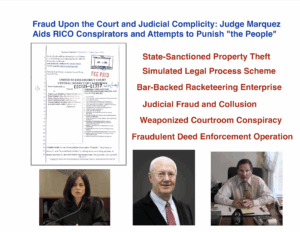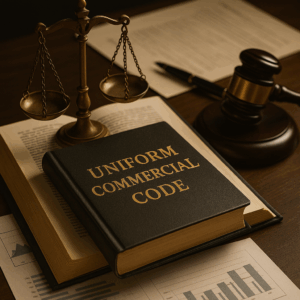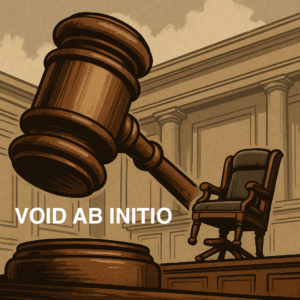The term “Sovereign Citizen” is a weaponized slur and a derogatory, defamatory, and slanderous term used by incompetents, traitors, and terrorists, to describe a living man or woman whom comprehends that everything is commercial in nature, as evidenced by CFR § 27.11 and Article 1, Section 8, Clause 3 of the U.S. Constitution, and claims to be a Sovereign however, they do not completely understand public and private law and possess the intelligence of that of a Sovereign.
The term “Sovereign Citizen” originated from patriots and Americans who reserve their rights, claim their estate and exemption from the United States, expatriate from the commercial democracy and remain in the private, de jure republic however, it has since been weaponized and has evolved into term used as propaganda by incompetents, traitors, and terrorists.
In General– typically/usually:
A “Sovereign Citizen” typically makes incorrect claims like stating they are an “American State National,” or “Sovereign Citizen,” or “State National,” instead of properly and correctly referring to themselves as a “national,” “non-citizen national,” “state Citizen,” “private citizen,” and/or “Sovereign.”
A “Sovereign Citizen” typically does not fully comprehend, House Joint Resolution 192 of June 5, 1933 public law 73-10.
A “Sovereign Citizen” typically does not fully comprehend, Gold Reserve Act of 1934, Public Law 73-87, Title III, Section 3.
A “Sovereign Citizen” typically does not fully comprehend, House Joint Resolution 348 Public Resolution, Number 63.
A “Sovereign Citizen” typically does not fully comprehend, Article 1, Section 10, of the U.S. Constitution.
A “Sovereign Citizen” typically does not fully comprehend, the “1940 Buck Act” and “Federal Areas.”
A “Sovereign Citizen” typically is dual-minded in their approach to public and private law and does not proceed sui juris, In Propria Persona, or by Special Limited Appearance.
A “Sovereign Citizen” typically could possibly be partially mentally incompetent and think they are their straw man/bank/person/individual/U.S. citizen.
A “Sovereign Citizen” typically claims to be a Sovereign, while still utilizing a “Social Security Number.”
A “Sovereign Citizen” typically claims to be a Sovereign, while receiving “benefits” and/or “privileges” from the United States.
A “Sovereign Citizen” typicallymakes incorrect statements and references to “Citizenship.”
A “Sovereign Citizen” typically is not capable of creating their own unsworn declarations “without the United States” in accordance with, 28 U.S. Code § 1746.
A “Sovereign Citizen” typically does not fully comprehend jurisdiction and how it can be obtained.
A “Sovereign Citizen” typically does not fully comprehend how to abate a matter.
A “Sovereign Citizen” typically does not reserve their rights in accordance with U.C.C. § 1-308 (formerly § 1-207).
A “Sovereign Citizen” typically is not capable of creating and completing a conditional acceptance on their own.
A “Sovereign Citizen” typically is not capable of completing an administrative procedure.
A “Sovereign Citizen” typically is not capable of assessing their own taxes and requires and relies significant assistance of a “Attorney In Fact.”
A “Sovereign Citizen” typically does not fully comprehend “minimum contacts” and/or “Invisible contracts.”
A “Sovereign Citizen” typically does not fully comprehend “offer and acceptance.”
A “Sovereign Citizen” typically does not fully comprehend “mailbox rule” aka “posting rule.’
A “Sovereign Citizen” typically tries to mix public and private law and do not know how to properly assert and exercise their rights.
A “Sovereign Citizen” typically places “blank indorsements” on all of their negotiable instruments, currency, and monetary instruments.
A “Sovereign Citizen” typically does know the different between a “right to travel” and “privilege of driving.”
A “Sovereign Citizen” typically claims to be a Sovereign but does not fully comprehend the “Sovereign Statutes” known as the “United States Code.”
A “Sovereign Citizen” typically claims to be a Sovereign but does not fully comprehend the “Uniform Commercial Code”
A “Sovereign Citizen” typically claims to be a Sovereign but is not a “secured party” and/or ‘secured creditor.”
A “Sovereign Citizen” typically claims to be a Sovereign but does not have their own private U.C.C. contract trust established to handle and maintain their own private banking ledger.
A “Sovereign Citizen” typically does not fully comprehend contract law, trust law, tax law, common law, Constitutional law, commerce, and banking.




